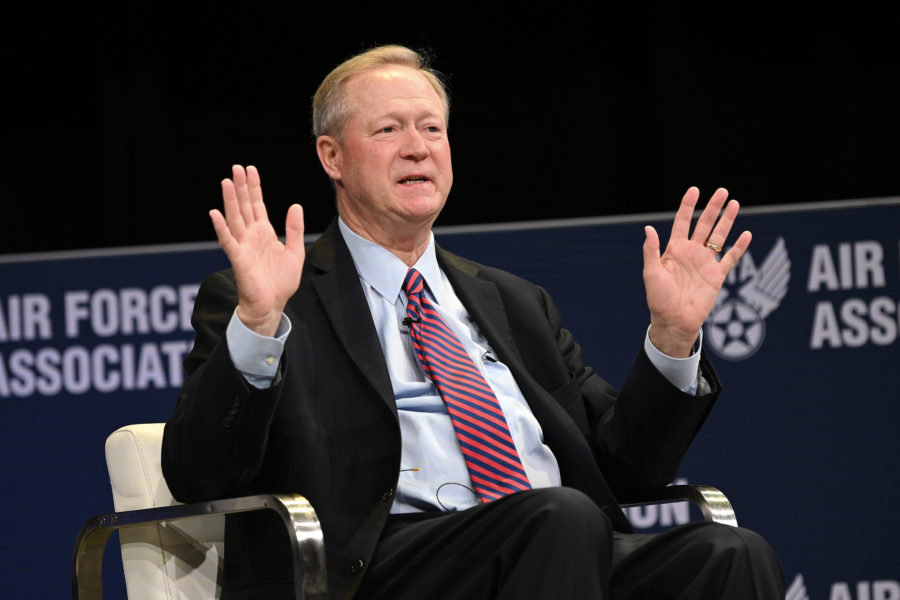Randall G. Walden, head of the Air Force’s Rapid Capabilities Office, where he has directed development of the B-21 bomber and the Advanced Battle Management System, is moving to a new job at the Pentagon to advise the DOD’s acquisition and sustainment chief, William A. LaPlante.
Walden, who is the director and program executive officer for the RCO, has been named “senior executive advisor” in the Office of the Undersecretary of Defense for Acquisition and Sustainment, according to a July 11 announcement from the Air Force.
The service could not immediately say whether a successor at the RCO had been determined.
LaPlante, formerly the Air Force’s acquisition executive, put Walden and the RCO in charge of B-21 development in 2015, when the Air Force selected Northrop Grumman to build what was then called the Long-Range Strike Bomber. LaPlante at the time described the choice of putting a major weapon system such as the B-21 under the RCO, rather than in a traditional program office, as a way to use lean management techniques with minimal Pentagon bureaucracy while taking advantage of the RCO’s ability to conduct projects in secret.
Pentagon leaders and cleared members of Congress alike have lauded the B-21 as a well-run program. The Air Force’s current service acquisition executive (SAE), Andrew Hunter, revealed in June that the B-21 is actually under budget.
Walden has reported that six B-21s are in construction at Northrop Grumman’s Palmdale, Calif., plant and that the first one will likely roll out in 2022. Walden had also predicted the first article would fly this summer, but Air Force officials have since walked back that prediction.
The Air Force has disclosed relatively few other products of the RCO, but one noteworthy program was the X-37B mini-space plane, one of which broke its own on-orbit record July 6. The RCO also says it developed the integrated air defense system installed around the “National Capital Region” after the 9/11 attacks.
During Walden’s 20-year Air Force career as a flight test engineer, he worked at times on classified projects. He retired in 2002 and was appointed to the Senior Executive Service that same year, subsequently working on special access programs, in the RCO, and as the director of test and evaluation for USAF. He became head of the RCO in 2014.
LaPlante was determined to write a good contract for the B-21 that could adapt to a changing threat, and the fact that the award handily survived a protest from the losing Lockheed Martin-Boeing team could be called one of LaPlante’s signature achievements while he was the Air Force SAE. He insisted on an open architecture for the B-21, and while USAF secured a fixed-price contract for the initial aircraft, the development program was a cost-plus arrangement that rewarded Northrop Grumman for hitting milestones early.

